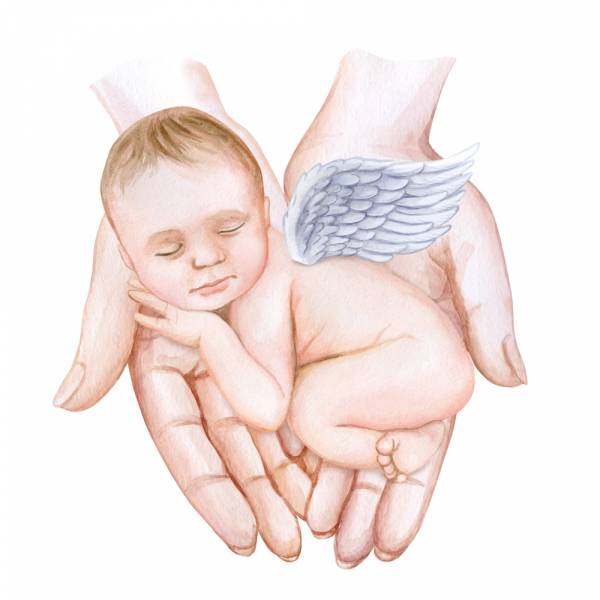
Pregnancy Loss & Stillbirth
Warning – this article deals with emotionally devastating issues. If you have lost a pregnancy, or experienced stillbirth and are struggling with your feelings, there is support available:
Bearsofhope.org.au
Sands.org.au
Birthtrauma.org.au
Or contact your GP
Becoming a family with your partner should be a time of joy. But for many women, the journey through pregnancy is cut short by loss, or ends in the heartbreak of stillbirth or neonatal death. And yet these things are rarely talked about. Society seems to think if we don’t talk about them those who have suffered the experience will be able to heal and move on, when in fact the reverse is true. If you experience pregnancy loss or stillbirth, it’s important to acknowledge your loss, and to grieve, just as you would at the loss of any loved one.
It Happens More Than You Might Think
In Australia, up to 1 in 5 known pregnancies result in miscarriage, and many women miscarry before they are even aware they are pregnant, 1 in every 135 pregnancies that reach 20 weeks ends in a stillbirth.
Clarifying the Medical Terms
Until it is happening to us, or someone we know, we are often unaware of the meaning of some of the clinical terms used by the medical profession around miscarriage and stillbirth. These are some of the terms your medical team may use when discussing your loss:
Miscarriage – loss of pregnancy prior to 20 weeks gestation, usually in the first trimester.
Stillbirth – Death of unborn baby after 20 weeks of gestation, usually in utero, but sometimes during birth.
Ectopic Pregnancy – where the fertilised egg implants outside the uterus, usually in the fallopian tube.
Molar Pregnancy – where the fertilised egg does not develop into a baby, but rather a cluster of cells.
Blighted Ovum – where a sac and placenta develop, but a baby does not.
Neonatal Death – a baby who dies within 28 days of birth.
Wondering Why
One of the hardest things to deal with when experiencing this loss is the lack of explanation as to why. It’s human nature to search for reasons, and when there is no medical explanation it can make it more difficult to process your grief, and accept your loss.
At times like this, understanding and support are vital in getting you through, but friends and family are also grieving, and are not always in the best place to give you the support you need. A professional with the appropriate training and experience can be invaluable, not just to you and your partner, but to your wider support circle.
Finding the Support You Need
While you are experiencing pregnancy loss, stillbirth, or neonatal loss your medical team will do all they can to assist you in a physical sense. But the emotional and psychological trauma you are experiencing will take more time and is often harder to heal.
Having a support team around you is vital. Not only for you as the mum, but for your partner, who will be trying to support you whilst at that same time dealing with their own grief and loss. In addition to your family and friends, there are professionals out there who can help.
Doulas
A doula is trained to provide comfort, and there are likely few times in life when you will need comfort more. Not only can they provide the physical comforts like food specially prepared to heal your body, and the practical comforts of someone to take care of light household duties for you, but they can offer a compassionate and understanding shoulder. This support can provide you with the time and space you need to come to terms with your loss.
Counsellors
Having a counsellor who is trained in pregnancy loss and grief can provide you with a safe space in which to express your feelings. The will be able offer clarity in understanding the natural grief, anger, anxiety and panic you are likely to be feeling, and support you as you find a path towards acceptance.
Your Feelings
As with any grieving, you will go through a wide range of emotions after the loss of a baby. It is entirely normal to feel anger, disbelief, disconnection, numbness, anxiety, confusion, and overwhelming sadness.
It is not uncommon to find it difficult to sleep, eat or concentrate. Or you may find you want to sleep all the time.
Whatever you are feeling, the important thing is to take all the time to grieve and heal that you need. There is no time limit, and you may find your grief is not linear, but will rise and fall.
Whilst there is no requirement for a funeral when you miscarry, many women feel it helps to have some form of commemorative ceremony. This can provide a focal point for your grief, and allow your loved ones to feel they are helping in a practical sense. But this is entirely personal, and whatever you wish to do is the right thing for you.
If it helps, keep in mind is that most women who experience pregnancy loss, stillbirth, or neonatal loss go on to have a healthy baby. Your doctors will advise when you might be physically ready, but don’t be rushed. Only you can determine when you are emotionally ready to try again. In the meantime, take care of yourself and your partner in whatever way feels right for you.
If you feel you, or someone you love, would benefit from the support of a doula in navigating this difficult time, please give me a call on 0422 258 771, or contact me here.